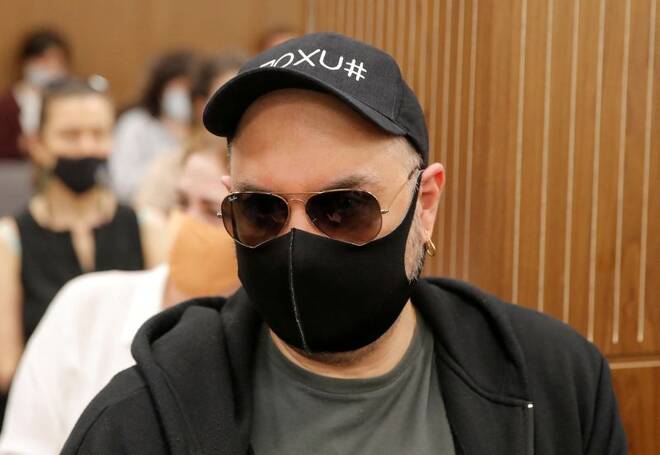Advertisement
Advertisement
Russia’s Bolshoi drops shows by two directors who spoke out against war
By:
LONDON (Reuters) - Russia's Bolshoi Theatre has upset opera and ballet fans by abruptly cancelling a series of shows this week by directors who have spoken out against the war in Ukraine.
LONDON (Reuters) – Russia’s Bolshoi Theatre has upset opera and ballet fans by abruptly cancelling a series of shows this week by directors who have spoken out against the war in Ukraine.
The theatre gave no reason for dropping Timofey Kuliabin’s production of the opera “Don Pasquale” and Kirill Serebrennikov’s ballet “Nureyev”.
Kuliabin has used his Instagram account to express solidarity with Ukraine and ridicule Russia’s description of its actions there. In one post, he showed a mocked-up version of the cover of Leo Tolstoy’s “War and Peace”, replacing the first word of the title with “Special Operation” – the term used by the Kremlin to describe the invasion.
Serebrennikov told France 24 in an interview last month that “it’s quite obvious that Russia started the war”, and that it was breaking his heart.
“It’s war, it’s killing people, it’s the worst thing (that) ever might happen with civilisation, with mankind… It’s a humanitarian catastrophe, it’s rivers of blood,” he said.
Both directors are currently outside Russia.
The replacement of the two shows with “The Barber of Seville” and “Spartacus”, two longstanding staples of the Bolshoi’s repertoire, drew hundreds of mostly critical online comments from ticketholders. Many demanded in vain to know the reason.
“What disrespect to the spectators and artists!” one woman, Valeria, wrote on the Bolshoi’s Telegram channel.
There was particular outrage at the cancellation of Serebrennikov’s “Nureyev”, a controversial production that premiered at the Bolshoi in 2017. The story of dancer Rudolf Nureyev, who defected to the West in 1961, included a tender scene with his gay lover that tested the Kremlin’s tolerance for what it calls “homosexual propaganda”.
(Reporting by Mark Trevelyan; Editing by Peter Graff)
About the Author
Reuterscontributor
Reuters, the news and media division of Thomson Reuters, is the world’s largest international multimedia news provider reaching more than one billion people every day. Reuters provides trusted business, financial, national, and international news to professionals via Thomson Reuters desktops, the world's media organizations, and directly to consumers at Reuters.com and via Reuters TV. Learn more about Thomson Reuters products:
Did you find this article useful?
Latest news and analysis
Advertisement
